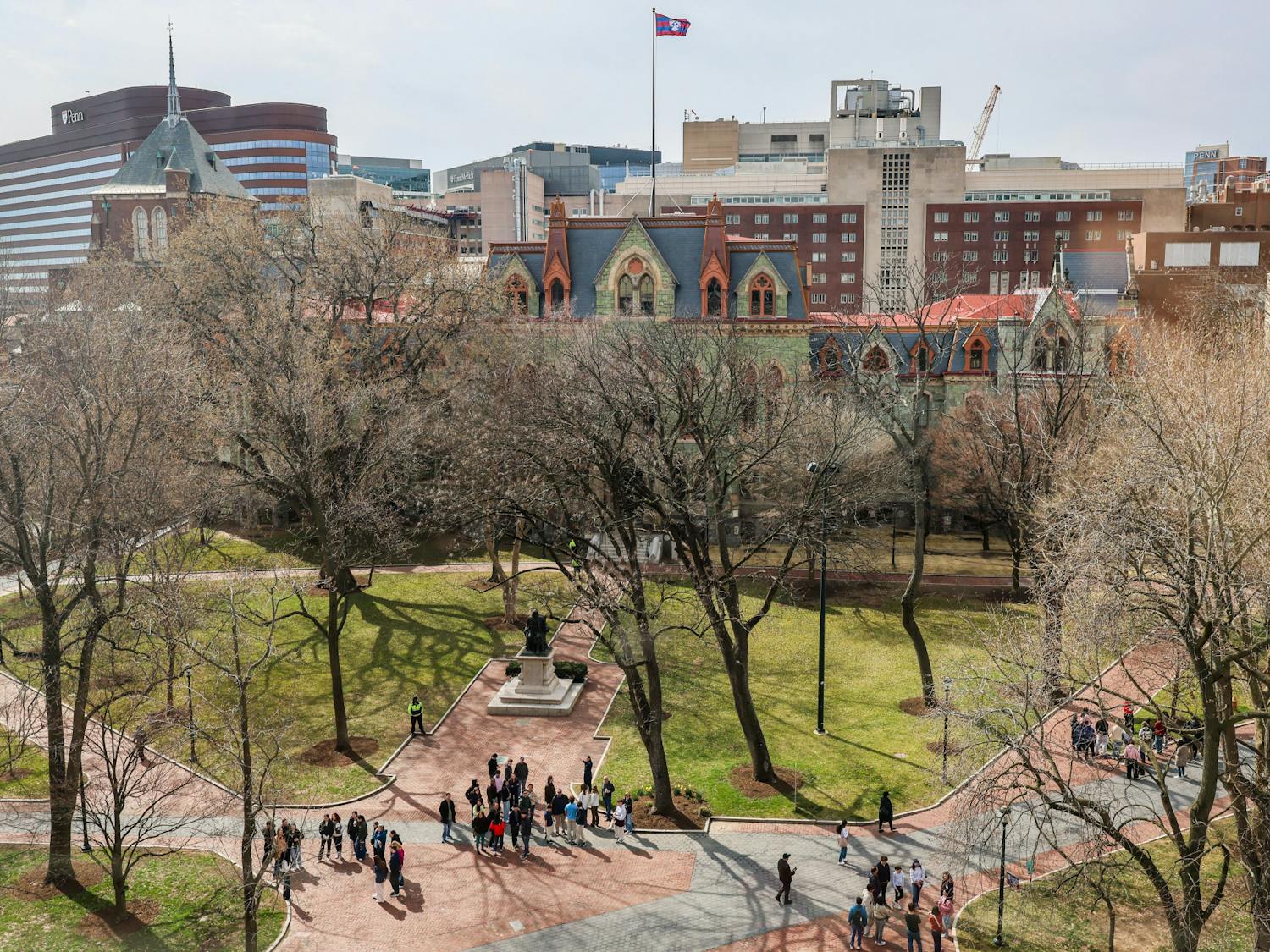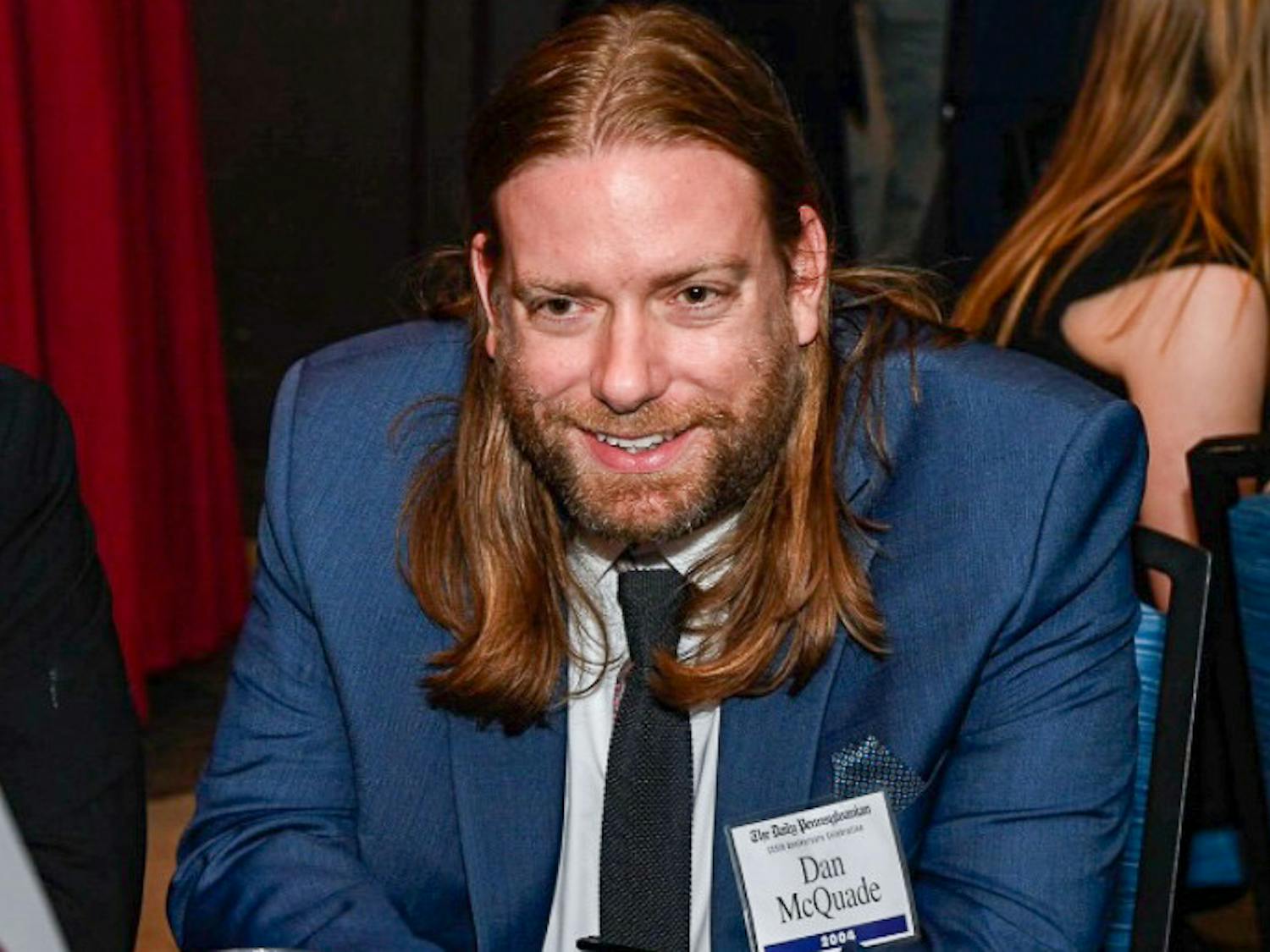With town hall meetings, campaign rallies, leaflets and political advertisements, a normal day for the 1,200 students of Philadelphia's Masterman High School has more closely resembled life on the presidential campaign trail than an ordinary school day.
For the past month, Masterman government students have been intensely lobbying the student body and squaring off in heated political debates on prominent issues as part of a school-wide mock presidential campaign, a key element of their participation in the Philadelphia Student Voices program of Penn's Annenberg Public Policy Center.
Created five years ago during Mayor John Street's first run for the office, Student Voices was initially conceived as a means of exposing Philadelphia students to the democratic political process and instilling in them a sense of civic responsibility.
"The purpose of Student Voices is to make kids aware of the issues that are important to them and get them thinking about these issues," says Kim Kirn, Philadelphia project coordinator for Student Voices. "We want to then engage them in the political process by both encouraging them to vote and encouraging them to participate in their local government."
Since its inception, the program has expanded tremendously, now including much of Pennsylvania and eight other cities across the United States. In Philadelphia, it has even become the civics component of the Board of Education's official high school social studies curriculum.
To maximize its impact, the Student Voices program has implemented a number of creative and hands-on activities in order to spark student interest in politics and combat the well-documented resistance of young adults to voting and political participation.
As a result, mock debates, videos, question-and-answer sessions with high-ranking politicians like Barack Obama and Alan Keyes, and interactive Internet discussions on issues that directly affect students are all integral parts of the Student Voices program.
"The interactive curriculum provides a lot of great ways for students to get involved in politics, even if they are not eligible to vote," Masterman teacher Steven Gilligan says. "Things like the campaign, the debates and the discussion questions really get everyone more actively involved in the democratic process."
Using the various interactive means, the program aims to combat political apathy by targeting the issues that are especially important to students, including funding for higher education, public school vouchers, the economy and the draft.
"A lot of times, we find that kids aren't interested in politics, because candidates don't address the issues which most concern them," National Director of Student Voices Phyllis Kaniss says. "Student Voices tries to help make students more politically aware regarding these issues and make local candidates address them."
The opportunity to have a direct effect on the agendas of local politicians has led the program to emphasize state and municipal -- rather than national -- concerns.
"We try to reverse the apathy of 18- to 25-year-olds by engaging them in politics at a local level," Kirn says. "By focusing on local issues, it is easier for students to see that the political process does, in fact, have an impact on their lives."
For example, Student Voices sponsors a Web-based moderated discussion, affording participants the opportunity to post their views on the most important issues facing their communities. Their recent responses focus on local issues, emphasizing drugs, violence, crime and safety, Philadelphia public schools, jobs and the Southeastern Pennsylvania Transit Authority.
"The most important issues in my community are safety, burglary and public schools," says one student of Central High School in Philadelphia. "I feel that America can do a better job in making our streets safer, eliminating theft and improving the public school system."
But inevitably, in this crucial election year, much of the program's focus this fall has been shifted to the presidential race. According to program directors, though the presidential race initially seemed far removed and therefore unimportant to many high school students, Student Voices has actually channeled the intensity of the campaign to work in its favor.
By showing students that their vote indeed matters, and by aggressively advocating and facilitating voter registration, Student Voices has not only persuaded students to vote in the 2004 presidential election, but also to remain politically active in the future, program coordinators say.
"We've used the excitement of the presidential campaign to encourage students to participate in all campaigns," Kaniss says. "Students who participate in Student Voices are very likely to register and vote if they are eligible, and will most likely become lifelong voters."








